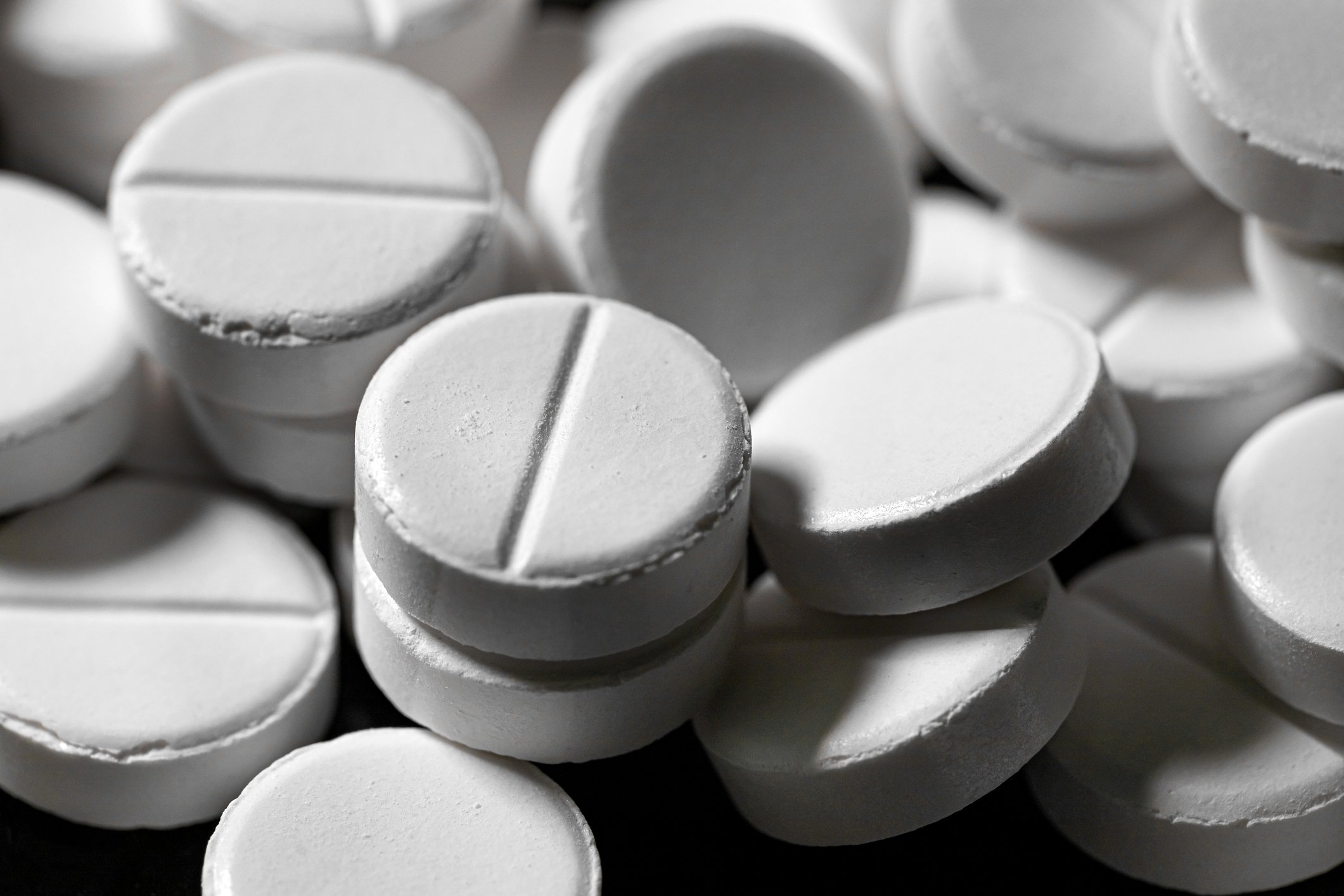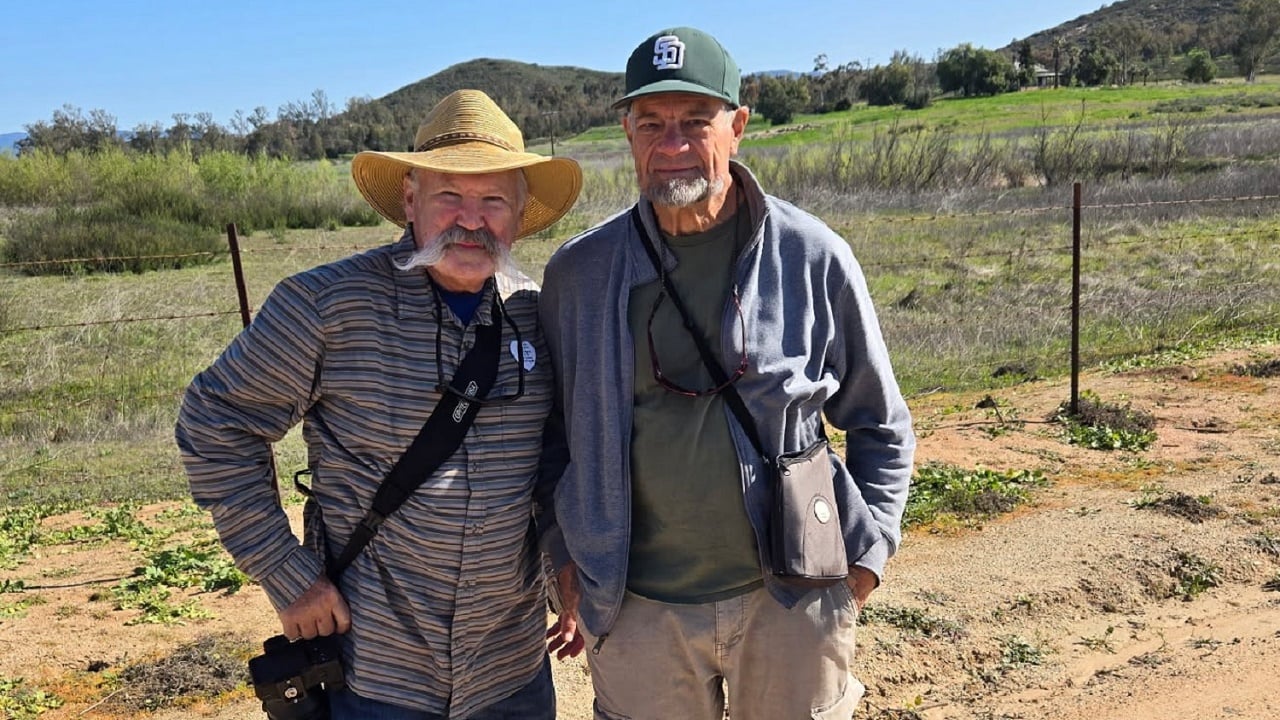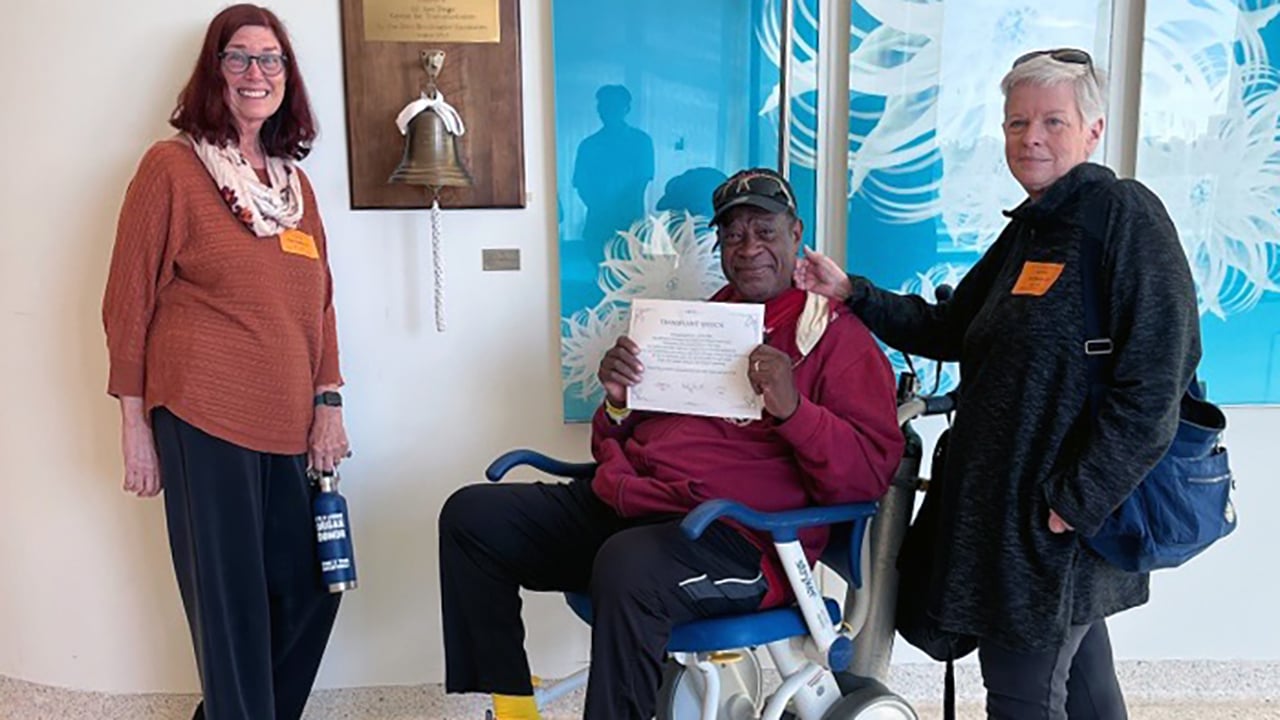Living Donor Kidney Transplant
Most transplanted kidneys come from people whose organs were donated upon death.
It can take many years for patients on the deceased donor waiting list until a match is made. Transplants of kidneys from living donors can reduce that waiting time. As a living kidney donor, you can help with the lifesaving decision of donating a kidney.
UC San Diego Health is the region's leader in transplantation with the Center for Transplantation. Our kidney transplantation program is experienced in caring for living donors. Our highest priority is to protect your health, safety, privacy and best interests.
Benefits of Living Kidney Donation
Kidneys from living donors have advantages:
- Surgery can be scheduled at a time that is convenient for both the recipient and the donor.
- Kidneys from living donors work better and longer than those from deceased donors.
- Patients can get a transplant before they start dialysis or earlier into the start of dialysis treatment.
- Living donors can recover and lead a normal life with some decrease in kidney function.
- Living donor surgery is done laparoscopically. You'll have a shorter recovery time, a lower complication rate and a decreased need for strong pain medications. You'll also be able to return to your normal activities sooner.
Who Can Become a Living Donor?
Donating your kidney is voluntary. You can stop or delay the kidney donation process at any time.
Living donors can be relatives, close friends or even people who do not know the recipient. They should:
- Be at least 18 years old
- Have normal kidney function
- Complete a medical, surgical and psychosocial evaluation
- Understand the risks and benefits of donation before giving consent
Start Your Kidney Donation Journey
Donor Evaluation Process
The first step is to complete our confidential health questionnaire, which we will review. If you are a possible donor, we'll call you to schedule a health screening call with the living donor coordinator.
During your screening call, we will determine if you can move forward with the donor evaluation process, which consists of:
- Blood and urine tests
- Imaging and diagnostic tests
- Evaluation appointment with our living donor team
These tests will help give us a better picture of your overall health.
You'll also need to complete routine health screenings with your primary care doctor, depending on your age and gender. These may include a Pap test (Pap smear), mammogram or colonoscopy. Based on the results, you may also have to consult specialists.
Start the Process of Becoming a Living Kidney Donor
Please provide your health history to help us determine if you are a possible candidate for a living kidney donation:
1. Complete a confidential health questionnaire online.
2. Or call 858-657-7729, and we'll help you complete the questionnaire.
Kidney Donation Options
Direct Donation
This is the most common type of living donation. You know the recipient, and you donate your kidney directly to them. Directed donations are often between blood relatives, like parents, siblings or children. They can also occur between people with close personal relationships, such as a spouse, friend, co-worker or acquaintance.
Paired Kidney Exchange
The paired exchange program typically involves two pairs of a recipient and a donor who are not compatible. The recipient in one pair is compatible with the donor in the other and vice versa. Working with the National Kidney Registry, a "swap" is arranged between the transplant centers where each donor donates a kidney to the recipient in the other pair.
Kidney Donation Voucher Programs
The National Kidney Registry Voucher Program allows you to choose a convenient time frame for your donation surgery and provide one or more vouchers for your intended recipients if/when they need a kidney transplant.
- Standard voucher program: The standard voucher can be used if you have a family member or friend who needs a transplant in less than a year and you would like to donate sooner rather than later. This is also helpful if you plan on being your recipient’s caregiver. It allows you to heal from your donation surgery before needing to take care of them after transplant.
- Altruistic donation/family voucher program: The family voucher can be used when you don't know anyone who will need a transplant in less than a year and you want to help others by starting a chain and donating your kidney to a stranger. You can list five family members or friends to receive the vouchers. Any one of them can claim the voucher when they need a kidney transplant. Once a voucher is claimed, the remaining ones are canceled.
Remote Donation
With remote donation, you can donate your kidney to a friend or family member who has their care at a transplant center outside of San Diego County. You can complete the evaluation and surgery at UC San Diego Health instead of traveling to your recipient's transplant center.
Remote donation is available for direct donation, paired exchange and the standard voucher programs.
Kidney Donation Surgery
UC San Diego Health has performed more than 4,000 transplants, including the first kidney transplant in San Diego.
Be prepared to take off at least six weeks from work for recovery. You cannot walk or lift more than 10 pounds during that time.
Your living donor surgery takes about four hours and is done laparoscopically. Expect to stay in the hospital for one to two days after your surgery.
We will help prepare you to take care of yourself after the donation. We will also coordinate your discharge and provide the support needed for recovery.
Kidney Donation Costs
Your recipient's insurance usually pays for your tests, evaluation, surgery, hospitalization and follow-up visits. The costs of your travel, living expenses and time off work are often not covered.
If you donate your kidney at UC San Diego Health, we can provide Donor Shield benefits. This program can help with wage loss and travel and lodging reimbursements. You can also apply to the National Living Donor Assistance Center for help with lost wages and travel expenses.
Living Kidney Donor Team
Donating a kidney is a big decision. You need to be honest with our transplant team about any fears and concerns. We will address your concerns and offer advice so you can decide what is best for you.
Our living donor team includes surgeons, nephrologists (kidney doctors), infectious disease specialists, nurses, pharmacists, social workers, dietitians, program coordinators and physical and occupational therapists. Our living donor advocate can provide medical, surgical and psychological support.
Our Specialists
Locations
Support Our Patient Assistance Funds
Donations are vital in helping kidney transplant recipients and living kidney donors, as well as their families. Your financial gift is deeply appreciated! Give now to:


